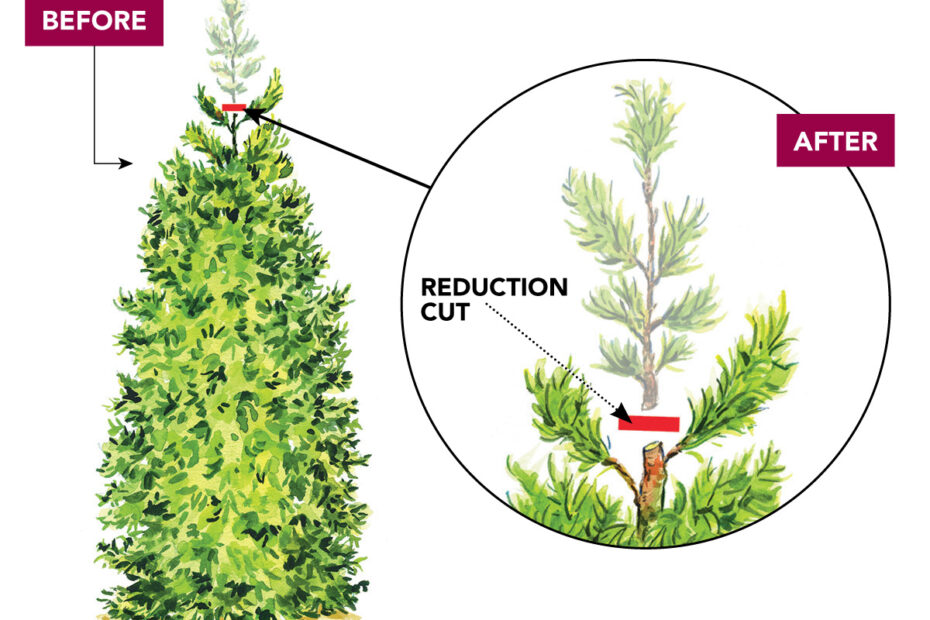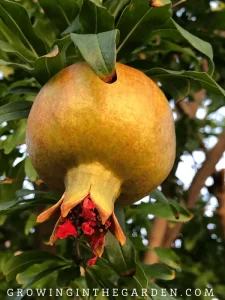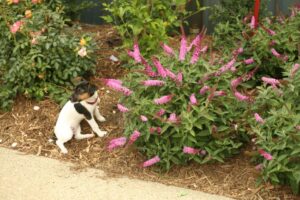Arborvitae Shrubs: Trim or Not to Trim?
Arborvitae shrubs are a popular choice for landscaping, thanks to their evergreen foliage and dense growth.
Some people argue that trimming arborvitae shrubs helps to keep them healthy and looking their best, while others believe that it is unnecessary and can even damage the plants.But when it comes to trimming, there is some debate over whether or not it is necessary..
So, what is the truth? Should you trim your arborvitae shrubs or not? In this article, we will take a closer look at the pros and cons of trimming arborvitae shrubs, so you can make an informed decision about whether or not it is right for your plants.

5 Headings for an Article on “Trim or Not to Trim Arborvitae Shrubs?”
- When to Trim Arborvitae Shrubs
- How to Trim Arborvitae Shrubs
- What Tools You Need to Trim Arborvitae Shrubs
- How to Prune Arborvitae Shrubs for Shape
- How to Prune Arborvitae Shrubs for Health
When to Trim Arborvitae Shrubs
The best time to trim arborvitae shrubs is in the early spring, before new growth begins. This will help to promote healthy new growth and prevent the spread of diseases. However, you can also trim arborvitae shrubs in the late fall, after the leaves have fallen.
How to Trim Arborvitae Shrubs
To trim arborvitae shrubs, you will need a pair of sharp, clean pruning shears. Start by removing any dead, diseased, or damaged branches. Then, trim the branches that are growing inward or crossing over each other. shape the shrub by removing any branches that are too long or out of place.
What Tools You Need to Trim Arborvitae Shrubs
In addition to a pair of sharp, clean pruning shears, you may also need:
- A ladder, if the shrubs are taller than you
- A pair of loppers, for cutting larger branches
- A pair of hand pruners, for cutting small branches
- A tarp, to catch any debris that falls from the shrubs
How to Prune Arborvitae Shrubs for Shape
To prune arborvitae shrubs for shape, you will need to:
- Decide on the desired shape of the shrub.
- Trim the branches that are growing outward or out of place.
- Use your pruning shears to create a smooth, even shape.
How to Prune Arborvitae Shrubs for Health
To prune arborvitae shrubs for health, you will need to:
- Remove any dead, diseased, or damaged branches.
- Thin out the branches to allow for good air circulation and sunlight.
- Prune the branches that are growing too close to the ground.
By following these tips, you can prune your arborvitae shrubs to maintain their health and shape.
The Benefits of Trimming Arborvitae Shrubs
The Benefits of Trimming Arborvitae Shrubs
Arborvitae shrubs are a popular choice for landscaping because they are evergreen, low-maintenance, and provide year-round interest. However, if you want to keep your arborvitae looking their best, it is important to trim them regularly.
Here are some of the benefits of trimming arborvitae shrubs:
- Improved shape and appearance. Trimming arborvitae shrubs can help to improve their shape and overall appearance. By removing dead or damaged branches, you can help to create a more symmetrical and attractive shrub.
- Reduced disease and pest problems. Trimming arborvitae shrubs can help to reduce the risk of disease and pest problems. By removing diseased or infested branches, you can help to create a healthier shrub that is less likely to attract pests.
- Increased airflow. Trimming arborvitae shrubs can help to increase airflow around the shrub. This can help to prevent the development of diseases and pests, and it can also help the shrub to dry out more quickly after a rain or watering.
- Improved light penetration. Trimming arborvitae shrubs can help to improve light penetration. This can be beneficial for the health of the shrub, and it can also make the shrub more attractive.
When to trim arborvitae shrubs?
The best time to trim arborvitae shrubs is in the spring, before new growth begins. This will help to prevent the spread of diseases and pests, and it will also help the shrub to recover more quickly from the pruning. However, you can also trim arborvitae shrubs in the fall, after the new growth has stopped.
How to trim arborvitae shrubs?
When trimming arborvitae shrubs, it is important to use sharp, clean pruning shears. Make sure to cut branches at a 45-degree angle, just above a bud. Avoid cutting into the trunk of the shrub, as this can damage the shrub.
How often to trim arborvitae shrubs?
The frequency with which you need to trim your arborvitae shrubs will depend on the growth rate of the shrub. Generally, you will need to trim arborvitae shrubs once or twice a year. However, if your shrub is growing very quickly, you may need to trim it more often.
By following these tips, you can help to keep your arborvitae shrubs looking their best all year long.
The Risks of Trimming Arborvitae Shrubs
The Risks of Trimming Arborvitae Shrubs
Arborvitae shrubs are a popular choice for landscaping, as they are evergreen and can tolerate a wide range of conditions. However, there are some risks associated with trimming arborvitae shrubs, which you should be aware of before you start cutting.
- You can damage the tree. Arborvitae shrubs have a shallow root system, so they are susceptible to damage if they are trimmed too heavily. This can lead to the tree becoming unstable and eventually dying.
- You can create an opening for pests. When you trim an arborvitae shrub, you create an opening for pests, such as insects and rodents, to enter the tree. These pests can damage the tree and make it more susceptible to disease.
- You can change the shape of the tree. If you trim an arborvitae shrub too much, you can change the shape of the tree. This can make the tree look unnatural and out of place in your landscape.
If you do decide to trim your arborvitae shrubs, be sure to do so carefully and only trim the branches that need to be trimmed. It is also important to avoid trimming the tree during the winter months, when the tree is dormant.
Table of Risks of Trimming Arborvitae Shrubs
| Risk | Description |
|---|---|
| Damage to the tree | Arborvitae shrubs have a shallow root system, so they are susceptible to damage if they are trimmed too heavily. This can lead to the tree becoming unstable and eventually dying. |
| Opening for pests | When you trim an arborvitae shrub, you create an opening for pests, such as insects and rodents, to enter the tree. These pests can damage the tree and make it more susceptible to disease. |
| Change in shape | If you trim an arborvitae shrub too much, you can change the shape of the tree. This can make the tree look unnatural and out of place in your landscape. |
- Spring
- Summer
- Fall
- Winter
Arborvitae shrubs are a popular choice for landscaping because they are evergreen, low-maintenance, and tolerant of a wide range of conditions. However, like all plants, arborvitae shrubs need to be trimmed from time to time in order to maintain their health and appearance.
The best time to trim arborvitae shrubs depends on the climate where you live. In general, arborvitae shrubs should be trimmed in the spring or early summer, before the new growth begins. This will help to promote new growth and keep the shrubs looking their best.
If you live in a warm climate, you may also need to trim your arborvitae shrubs in the fall or winter. This will help to prevent the shrubs from becoming too overgrown and will also help to keep them healthy.
When trimming arborvitae shrubs, it is important to use sharp shears or pruning shears. Be sure to cut the branches back to a point just above a bud or leaf node. This will help the shrubs to produce new growth.
It is also important to avoid over-trimming your arborvitae shrubs. Trimming too much can damage the shrubs and make them more susceptible to pests and diseases.
If you are not sure how to trim your arborvitae shrubs, it is best to consult with a qualified arborist. They can help you to determine the best time to trim your shrubs and how much to trim.
How to Trim Arborvitae Shrubs
How to Trim Arborvitae Shrubs
Arborvitae shrubs are a popular choice for landscaping because they are evergreen, drought-tolerant, and relatively low-maintenance. However, in order to keep your arborvitae looking their best, it is important to trim them regularly.
When to Trim Arborvitae Shrubs
The best time to trim arborvitae shrubs is in the spring, after the new growth has emerged. This will help to shape the shrubs and encourage new growth. You can also trim arborvitae shrubs in the fall, but it is important to do so before the weather gets too cold.
How to Trim Arborvitae Shrubs
To trim arborvitae shrubs, you will need a pair of sharp pruning shears. Start by cutting back any dead, diseased, or damaged branches. Then, trim the branches to the desired shape. Be sure to cut the branches at a 45-degree angle, just above a bud.
Tips for Trimming Arborvitae Shrubs
- When trimming arborvitae shrubs, it is important to use sharp pruning shears. Dull shears can damage the branches and make them more susceptible to disease.
- Be sure to wear gloves when trimming arborvitae shrubs. The sap from arborvitae shrubs can irritate the skin.
- If you are not sure how to trim arborvitae shrubs, it is best to consult with a professional arborist.
Table of Contents
-
When to Trim Arborvitae Shrubs
-
Tips for Trimming Arborvitae Shrubs
What Tools You Need to Trim Arborvitae Shrubs
What Tools You Need to Trim Arborvitae Shrubs
- Hand pruners
- Lopping shears
- Secateurs
- Pole pruners
- Trimmers
In addition to these basic tools, you may also need:
- A ladder
- Safety glasses
- Gloves
How to Trim Arborvitae Shrubs
- Inspect the shrub and identify any dead, diseased, or damaged branches.
- Use hand pruners to remove any small branches that are less than 1 inch in diameter.
- Use lopping shears to remove larger branches that are 1 to 2 inches in diameter.
- Use secateurs to remove branches that are 2 to 3 inches in diameter.
- Use pole pruners to remove branches that are too high to reach with hand pruners or lopping shears.
- Use trimmers to remove any weeds or grass that are growing around the base of the shrub.
Tips for Trimming Arborvitae Shrubs
- Trim arborvitae shrubs in early spring, before new growth begins.
- Cut branches back to the main stem or branch.
- Do not remove more than one-third of the shrub’s foliage at a time.
- Water the shrub well after trimming.
Resources
1. Arborvitae Pruning: When and How to Trim Your Arborvitae Shrubs
This article from The Spruce provides detailed instructions on how to prune arborvitae shrubs, including when to prune and what tools to use. The article also includes tips on how to avoid damaging your shrubs.
2. Should You Trim Arborvitae Shrubs?
This article from Gardening Know How discusses the pros and cons of trimming arborvitae shrubs. The article also provides tips on how to prune your shrubs if you decide to do so.
Key Takeaways
Outro
Arborvitae shrubs are a popular choice for landscaping because they are evergreen, low-maintenance, and can tolerate a variety of conditions. Whether you choose to trim your arborvitae shrubs or not is a personal decision. There are pros and cons to both sides of the argument. Ultimately, the best decision for you will depend on your individual needs and preferences.
If you do decide to trim your arborvitae shrubs, be sure to do so properly. Use sharp shears or a pruning saw, and make cuts that are clean and angled. Avoid cutting into the live wood of the shrub, as this can damage the plant.
Trimming your arborvitae shrubs can help to maintain their shape and size, and can also help to improve air circulation and reduce the risk of pests and diseases. However, it is important to note that over-pruning can stress the plant and make it more susceptible to damage.
So, should you trim your arborvitae shrubs? The answer is: it depends. Weigh the pros and cons carefully, and make the decision that is best for you and your landscape.
- Cat Palm vs Majesty Palm: Which Should You Choose? - June 30, 2024
- Flowers That Survive Winter: Discover the Exceptional No. 5 - June 30, 2024
- The Ultimate Guide to the Growth and Care of the Black Pagoda Lipstick Plant - June 29, 2024





